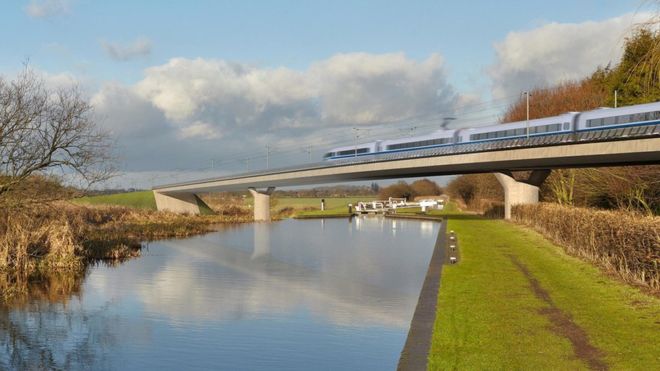The search for a company to take on the £2.75bn contract to build high speed trains for the HS2 rail network got underway on Friday.
The Department for Transport said up to 60 trains, capable of speeds of about 225mph, were needed.
The contract, which will also involve maintaining the fleet, will be awarded in 2019.
The trains are for the first phase of the project, due to open in 2026 and run between London and Birmingham.
Construction will begin later this year and it is expected to reduce rail times between Birmingham and London by 32 minutes.
A second Y-shaped phase of HS2 will open in two stages.
The line from Birmingham to Crewe will launch in 2027, with the remaining construction – which includes a spur taking HS2 to a new station at Manchester Airport – due to finish six years later.
There will be separate contracts in the future to supply trains for this phase.
Transport secretary Chris Grayling said the new railway would carry more than 300,000 people a day.
“Hundreds of jobs will be created in building and maintaining these trains, representing a great opportunity for British-based businesses and suppliers.
“In total 25,000 jobs and 2,000 apprenticeships will be created during HS2 construction and we have held discussions with UK suppliers to make sure they are in the best possible position to win contracts,” he added.
Bidding process
Friday’s launch comes ahead of a formal start of the process in spring 2017, when companies interested in bidding can learn more about the process. Formal invitations to tender will be made in 2018.
Hitachi Rail Europe said it will bid for the contract to build the HS2 trains.
The rail manufacturer is headquartered in London and builds trains at its plant in Newton Aycliffe in County Durham.
Its sales director, Nick Hughes, said: “Our HS2 trains would be built in Britain, for Britain, and combine world-leading Japanese Shinkansen technology with British manufacturing know-how.”
HS2 has been dogged by controversy, with critics saying the scheme poses a threat to swathes of English countryside.



